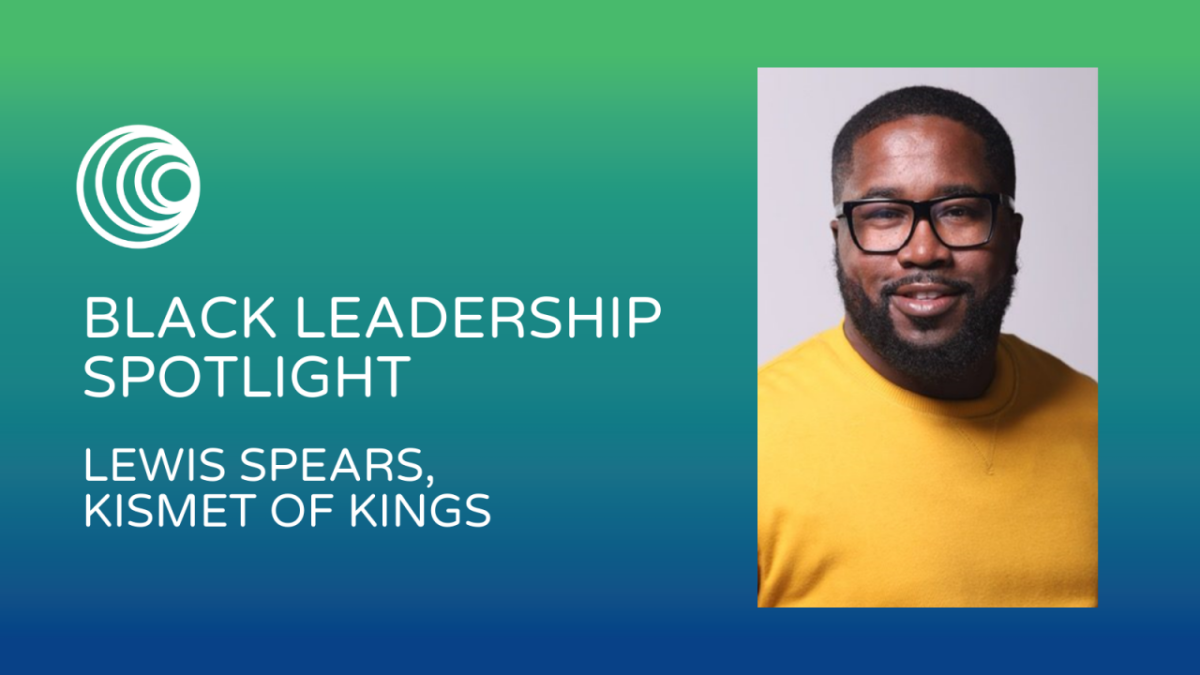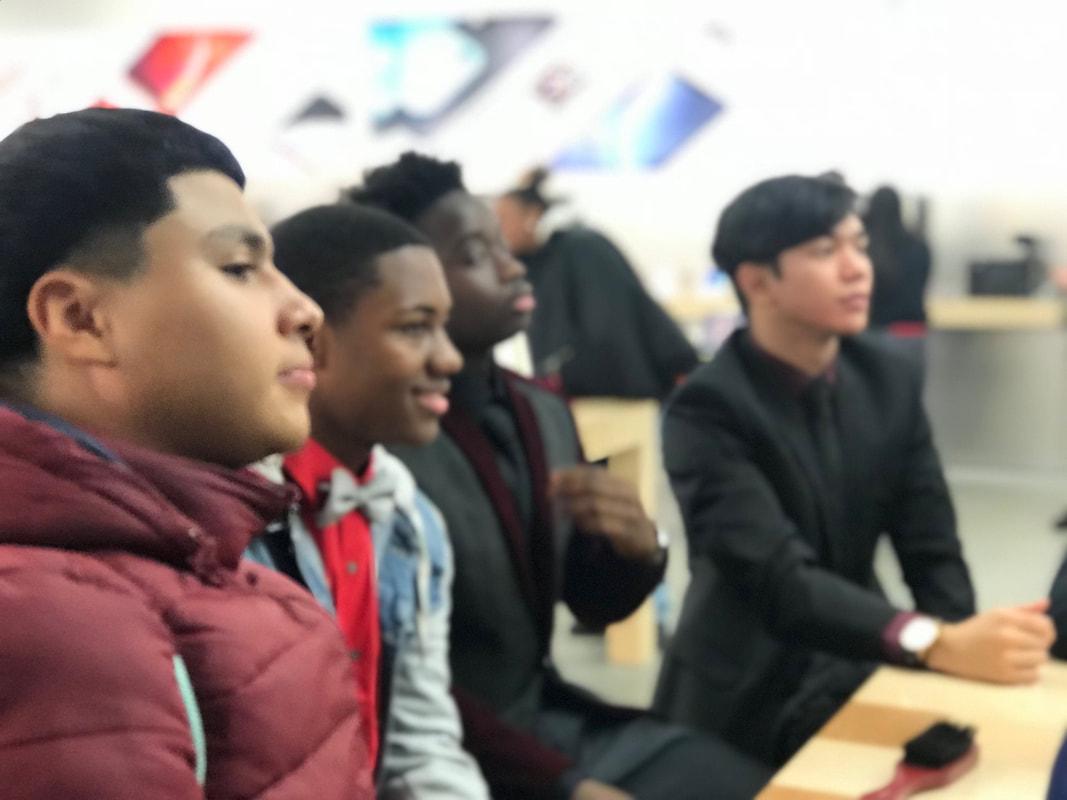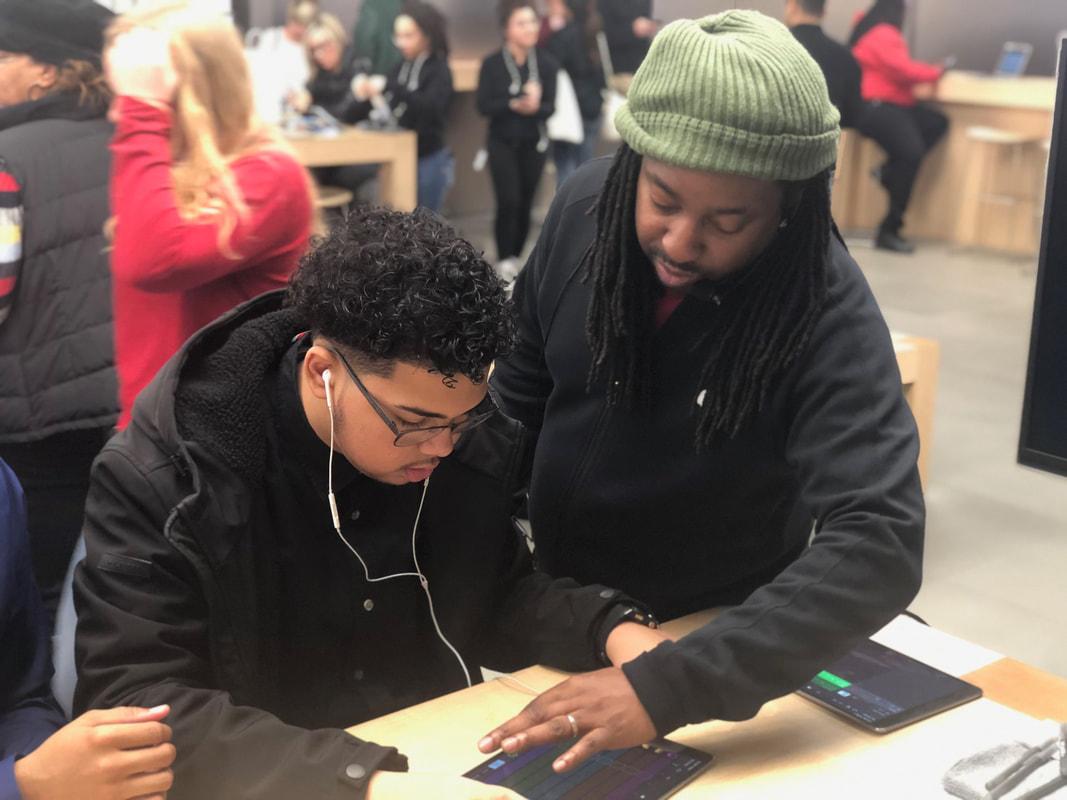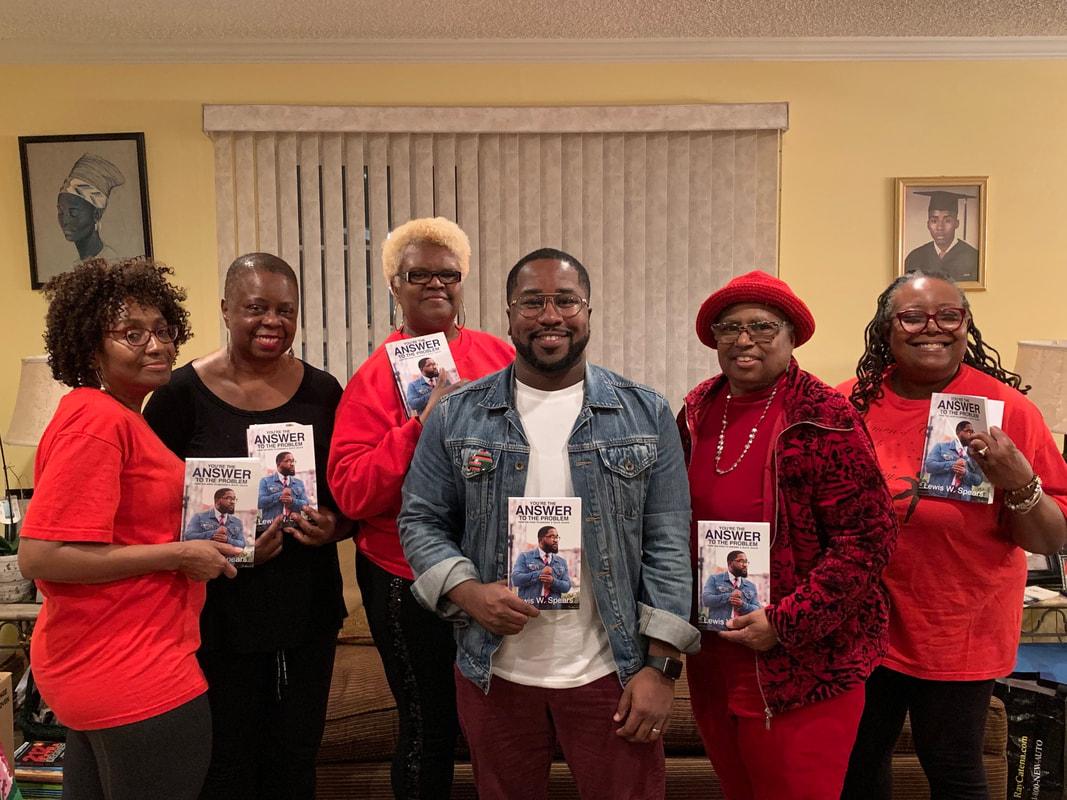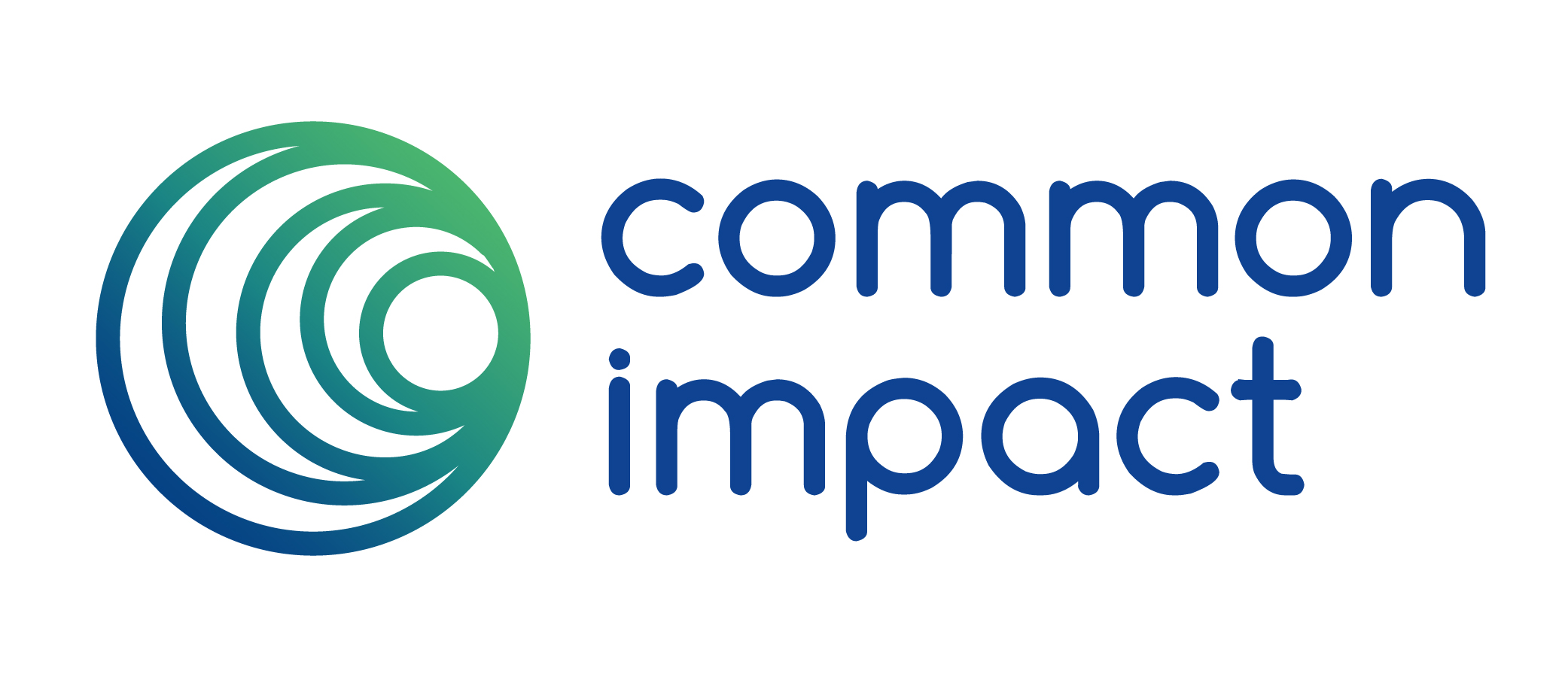Black Leadership Spotlight: Lewis Spears, Kismet of Kings
In celebration of Black History Month, Common Impact is spotlighting remarkable Black nonprofit leaders and their many contributions to creating more positive, healthy, and equitable communities.
Today we hear from Lewis Spears, Founder & Executive Director of Kismet of Kings, a Jersey City, NJ-based nonprofit that serves Black and Brown young men between the ages of 11-17, many of whom are from low income households. Kismet of Kings’ mission is to provide a consistent, safe learning environment for these young men to bring about positive change to themselves, their community, and the world. The organization fosters supportive mentor-mentee relationships with local community leaders that promote increased academic success, positive self-image, and unwavering character in order to create productive members of society.
Learn more about Kismet of Kings and how you can support their work by making a donation or volunteering.
Tell us about your role as Executive Director of Kismet of Kings. How have you led during the pandemic?
I create leadership positions and systems that are designed to work for themselves so I can focus on participation, volunteers, and anything outside of the everyday regimented schedule. However, as an Executive Director now, everything is so up in the air. One minute I’m like, “Yes! We’re doing three events this week!” and then next thing you know, one of my young men has COVID or somebody passed away.
I read an article the other day about the trauma that a lot of leaders are experiencing because they’re trying to lead a group of people without really knowing the direction they’re going in. These are nebulous times. It’s very difficult to be on point all the time like I would normally be because there’s so much that’s going on with COVID. Even for my young men, it’s very difficult to do this program optimally because of COVID.
At the heart of Common Impact’s work is a focus on alleviating inequality. How does Kismet of Kings alleviate inequality?
Disparity is part of the reason I decided to do the work I do. As an educator, I taught in the classroom for thirteen years, and that’s exactly what I went to Harvard for. But when I looked at the credit roll list, the honor roll list, perfect attendance, anything dealing with achievement and positivity, I didn’t see a lot of my young men there. In fact, there were marked periods when I would not see any. But consistently, every month, when it came to delinquent activities, suspensions, getting locked up, anything dealing with punitive measures, our young men were at the top of the list. But why?
I went through the public school system, and I can relate to them in many ways, but even with my best efforts as a Black educator, I knew I was missing the mark over and over again. So Kismet of Kings came out of disparity and disproportionality. Right now what the program does is level the playing field by teaching young men character and leadership development and giving them the keys to be successful.
How has Kismet of Kings leveraged skills-based volunteer opportunities and how has it helped your organization deliver on its mission?
Prior to COVID, one of our biggest issues was not having a record of who gave what. As a result, really good volunteers who have connected with the young people, who they love and adore, we don’t get them back because there’s no real root to keep them there.
Last year, we did a day of service through Fidelity Impact Week where they did a CRM (customer relationship management) assessment with us and gave us recommendations. Thanks to that skills-based volunteering project, we decided to go with Bloomerang, which is a nonprofit CRM that supports donor and volunteer management and retention. Now that we have it, we can do automatic emails to our providers, schedule appointments with our volunteers, and things like that. We’re creating systems now to really engage them.
What have been some of your major challenges over the past year?
I don’t think COVID is really the deal breaker at this point because we’ve learned to have virtual meetings and do a lot of things remotely. The hardest part now is the palpability of it. Our young people, they’re getting lost in this this virtual world and it’s becoming a little scary.
For instance, I have a young man who has become an avid QAnon believer. He’s been inundated with these right wing media messages that have altered the way he thinks. He feels slighted, he’s really upset, and I’m concerned about him believing these theories and how it translates into real life. Recently, he got in trouble with his school for some harmful content he put up online. I was eventually able to get him to take it down and we have bi-weekly meetings so that I can keep him on track, but these are some of the things our young men are doing.
The other side of it is they’re in front of the computer, they’re not even getting grades for it, they’re not even logging on, they’re pretending in front of their parents that they’re doing something, but really they don’t even have the desire, so we’re talking about depression and all the other mental health stuff.
Despite the incredible work that Black nonprofit leaders like you do every day, we know that BIPOC-led and serving organizations receive disproportionately less support in the form of donations, grants, and corporate partnerships. How can businesses and philanthropy step up to change the status quo here?
With the mom and pop organization that I started out with, in the beginning there were a lot of expectations or mandates put on things that are not necessarily important to us at that point. When I had run the program for two years, foundations and potential sponsors would ask things like, “What percentage of your group is successful?” and I didn’t know – I was in the murky part of all this! I think what would be great is if there were questions like, “How do you measure success?” and “How do you know you’re successful?” so that we’re not constantly focused on numbers and instead we can focus on experiences. Get rid of those lofty, big business ideas of metrics.
Also, if they could come in and give support along with money. For example, Fidelity gave support in terms of the CRM research they did for us, which was what I really needed. So when you think about the work, it may be tandem to something else. It may be a company saying they’re not just going to give money, but they’re going to send their IT person to the nonprofit for a half day. It’s about figuring out how we can use personnel in a smart way to support small nonprofits, because ultimately we have the passion and know-how, we just need the financial and back office support.
Big businesses should do more to support the groundwork of small youth development nonprofits like Kismet of Kings because we will be the ones who send our people to you. We will be the ones who develop our young people so they’re equipped for the 21st century workforce. They can be molded, and our influence will be paramount because essentially we can train a kid to do exactly what you need them to do ten years from now or eight years or three years from now. We’re doing the work now that will bring businesses results in the near future.
What brings levity to your day or work?
When we started the program in 2013, one of the issues that motivated me was finding out that if young people don’t do well their freshman year, the likelihood of them graduating from high school on time will decrease significantly. Starting out, we were a mom and pop organization. Our young people felt good about the events and programs we did and everybody gave positive feedback, but there were no real metrics to measure things.
About four years ago, we really started tracking and using data. We started out with 20 young men that year and 16 passed ninth grade, two of them needed to go to summer school in order to pass, and two of them didn’t do well. But 18 out of 20, that’s 90 percent. Today, we have young men in their senior year we’ve been connected with since their freshman year. What brings me a lot of joy is acceptance letters. One of my young men needed to take summer school after his freshman year. He ended up doing it, but he failed some classes the next year, and just had a rocky, rocky first two years. Now, that young man just got accepted to Seaton Hall, so I’m smiling!
Another thing that brings me levity is when I hear my young men telling other young men the things that I’ve told them. We have a quote: “How you do anything is how you do everything.” One of our young men was not doing work at school, trying to be a rapper, and another one said, “Listen, however you do one thing is how you do everything. So if you’re slacking as a student, then you’re going to slack in the area of being a rapper too,” and that really hit him. Just to overhear those types of conversations, it brings a great amount of joy to me.
Please tell us about one or more of your favorite Black leaders, changemakers, thinkers, educators, or writers.
There are so many people I love for different reasons! People like W.E.B. Du Bois and Booker T. Washington, I really like those guys for what they were able to do in the world of education. When you look at W.E.B. Du Bois’ life, he was a slave and 16 years later after slavery ended, he created his own university. I love Stokely Carmichael because of how revolutionary he was, Maya Angelou because of her poems and how she would express herself, Leontyne Prince, an amazing opera singer I remember doing a report on in eighth grade and being mesmerized by. I love Paul Laurence Dunbar, Nelson Mandela, Desmond Tutu, Oprah Winfrey. One of my favorite people right now is Lebron James.
I love my mom! She’s an amazing, amazing person. Not perfect, but definitely purposed, and her purpose was to bring this knucklehead into the world and give me all the love that I needed so I can do whatever it is I do for the world.
There are so many people who I love from afar and close up, and I walk around with all of them, whether it’s their quotes or their experiences. I bring all of that to the table with our young people so they’re getting exposed to all of it – and not just during Black History Month.
Read more about Lewis in his book, You’re the Answer to the Problem: From the Hood to Harvard & Back Again.

